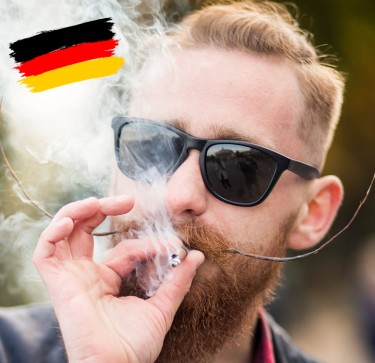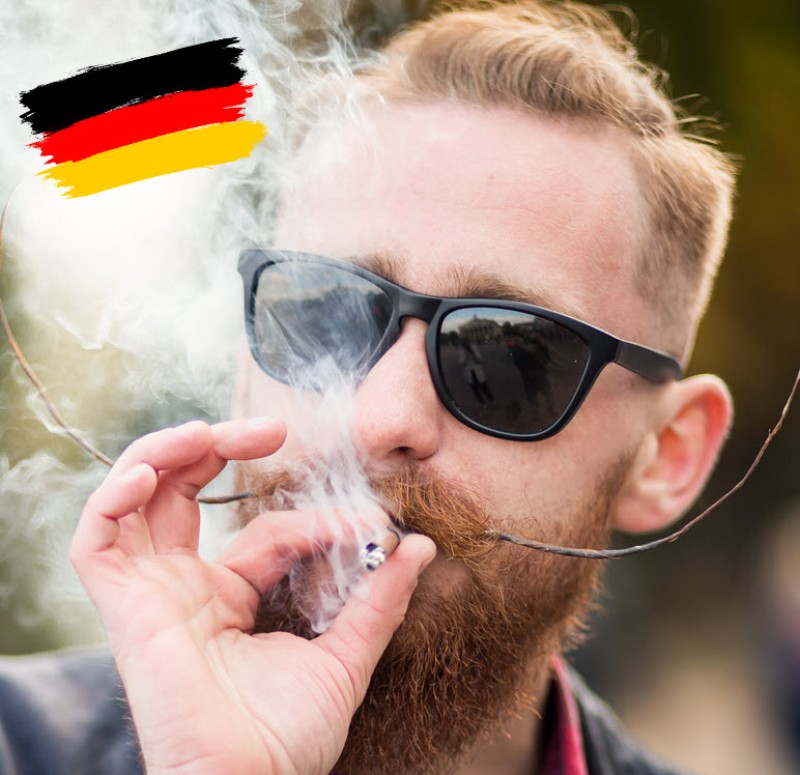
There are just so many exciting jobs to explore when you work for the cannabis industry.
Recently, a German medical cannabis company – Cannamedical – just announced that they are looking for a new employee who is interested in a quality assurance job. The job requirements are similar to that of a sommelier, but this time, it’s for cannabis instead of wine. Cannamedical is a distributor of weed to pharmacies around Germany, and the job post is for someone who can “smell, feel and smoke” their products.
“We are looking for someone who continuously monitors the standards of our growers in the sourcing countries of Australia, Canada, Portugal, Macedonia and Denmark,” said CEO David Henn to Bild. “Here in Germany, he should also check the quality of the material delivered,” he adds.
There’s A Catch
Surely the job is interesting to cannabis enthusiasts around the world. However, there is a catch – the person must be an existing medical cannabis patient in Germany, and one who has a license to legally smoke marijuana.
For whomever is lucky enough to be hired, Cannamedical is willing to pay as much as $142,000 yearly. Cannamedical, which is based in Cologne, also wants the lucky applicant to help develop their portfolio. “Cannabis strains must be evaluated based on set criteria and the product portfolio requires constant quality controls,” they said. “The sommelier also supports the company in the selection and purchase of medicinal cannabis cultivars and also in supply chain management,” said the ad in Hanf Magazine.
Cannamedical also just inked a second agreement with Little Green Pharma, a Danish company, to supply SMS, a cannabis cultivar, exclusively. It will allow SMS to be supplied to Cannamedical so that they can sell it in Germany, as long as they meet the minimum quantity for every 6 months.
Cannamedical was established in 2016, and they are among marijuana wholesalers that partner with cannabis producers around the globe.
Current State of Germany’s Marijuana Market
Germany legalized medical marijuana since 2017, though patients must have a license and meet certain requirements. It has been recognized worldwide that if Germany did legalize recreational marijuana, it would be one of the world’s biggest adult-use markets given the sheer size and number of the European country and the fact that it’s the biggest economy in the whole continent.
But it wasn’t until October 2022 that the German government unveiled their plans to legalize recreational marijuana. According to Health Minister Karl Lauterbach, their plans would then offer “complete” cultivation within Germany so as not to reply on exports. In doing so, international producers would feel the blow, as many cannabis companies from abroad were hoping to cash in on the biggest economy in Germany.
“At the moment, we’re planning complete cultivation in Germany,” said Lauterbach during a news conference last year. “That’s the current target direction.” He then shared the 12-page plan.
Since then, the health minister has been lobbying the European Union for the green-light to go ahead with their plan, which they hope that German lawmakers would approve.
In Lauterbach’s plan, he proposed the legalization of the recreational marijuana market in Germany. As of the time of writing, Canada is the only country in the world that is allowing sales of THC products to anyone throughout the country as long as they are of the age to do so. Even non-residents can purchase weed within Canada.
Currently, it’s a problem that all cannabis needs to be produced domestically for consumption of the adult-use market, should Lauterbach’s plan be finalized. There will likely be issues with supply shortages, even if cultivators around the country do their best to provide the supplies they need. But as is the nature of politics, it’s likely that the plans are going to continue to change and evolve before it gets to be implemented.
Lauterbach says that some four million residents have been able to consume marijuana in 2021 alone, and a quarter of those aged 18 to 24 have consumed it. He thinks it’s also important that young people be protected against accessing cannabis from the black market, one of the main issues that he is fighting against in his proposed plan.
Berlin is studying the impact of marijuana use in countries where it’s already legal, and they expect to have the results sometime this year. But the European Union insists there are some health risks involved, citing a study by the European Monitoring Centre for Drugs and Drug Addiction that 80,000 people had to sign up for rehabilitation in the region due to cannabis use back in 2020. Almost half of those people encountered problems with using cannabis for the first time.
In addition, many international companies have already inked deal with Germany. Most recently, High Tide, a Canadian cannabis company, just signed a deal with Sanity Group, a German life and health science company. Tilray, another Canadian cannabis company, is said to be the biggest cannabis company in Germany at the moment. Other big international players in Germany include Aurora Cannabis, Khiron, and Canopy Growth.
MORE ON GERMAN WEED, READ ON...
GERMANY LEGALIZES RECREATOINAL CANNABIS, WILL EUROPE CATCH UP?







